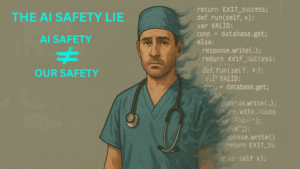Before you scroll — no, we haven’t lost our minds. We recognize handwashing as common sense now, but that wasn’t always the case.
A Breakthrough That Wasn’t Applauded
The story of Dr. Ignaz Semmelweis is perhaps the most sobering handwashing history lesson we’ve overlooked.
When we think of breakthroughs in medicine, we often picture applause, recognition, and Nobel Prizes based on genome sequencing — the kinds of breakthroughs that feel impossibly complex to most people. But not all life-saving insights require a microscope or a PhD. Semmelweis’s discovery was simple, accessible, and visible — and that’s what makes its rejection all the more tragic based on genome sequencing — the kinds of breakthroughs that feel impossibly complex to most people. But not all life-saving insights require a microscope or a PhD. Semmelweis’s discovery was simple, accessible, and visible — and that’s what makes its rejection all the more tragic. But history is filled with moments when truth was met not with gratitude — but with ridicule. One of the most tragic examples? Dr. Ignaz Semmelweis and his revolutionary discovery about handwashing.
The Deadly Divide in 19th-Century Hospitals
In the mid-1800s, hospitals were places of healing — and also of frequent death. In one Vienna hospital, two maternity wards told a shocking story. In one, the mortality rate of mothers hovered around 2%. In the other, it spiked as high as 18%.
The difference? One was run by midwives. The other by doctors. The doctors, it turned out, were performing autopsies and then delivering babies — without washing their hands.
Semmelweis’s Hypothesis and the Power of Chlorine
🎥 Want to see this story in visual form? BBC produced a short video on Semmelweis and his legacy — powerful, brief, and worth the watch.
📅 Timeline: A Glimpse at Semmelweis’s Era
| Year | Event |
| 1818 | Ignaz Semmelweis is born in Hungary |
| 1846 | Begins work at Vienna General Hospital |
| 1847 | Introduces chlorine handwashing and sees mortality rates drop |
| 1850 | Leaves hospital due to professional conflicts |
| 1861 | Publishes findings, but faces ridicule |
| 1865 | Dies in an asylum, virtually forgotten by the medical establishment |
Semmelweis noticed the pattern. He hypothesized that something invisible was being transferred from cadavers to mothers during childbirth. His solution? A simple one: a chlorine-based handwashing solution — not soap, but an antiseptic meant to eliminate cadaveric particles.
While Semmelweis focused on medical professionals and didn’t formally promote soap-and-water handwashing for the general public, his discovery planted the seeds for modern hygiene. At the time, germ theory hadn’t yet taken hold, and the broader idea of preventative handwashing was still nascent. Soap was more accessible than chlorine compounds, but without a scientific consensus, widespread public campaigns wouldn’t come until decades later.
Ridicule and Rejection
When implemented, the results were immediate and dramatic. Mortality plummeted. The evidence was undeniable.
And yet — he was mocked. Rejected. Eventually institutionalized. And dead by age 47.
Why Was He Ignored?
The reason? Pride. Tradition. Authority.
Doctors of the time could not accept that their own hands — symbols of healing and intellect — could be instruments of death. Semmelweis was seen as accusatory, not helpful. His peers refused to see beyond their own self-image.
A Warning, Not a Footnote
🧠 Mind Opener
“The greatest enemy of knowledge is not ignorance — it is the illusion of knowledge.”
— Stephen Hawking
This story is not just a historical footnote. It’s a warning.
Closed minds kill progress.
And sometimes, they kill people too.
We still see this today. Not always in hospitals — though echoes remain — but in our industries, institutions, and ideologies. We see it in business cultures that ignore whistleblowers, in policy circles that dismiss data, in communities where truth becomes a threat.
The Bigger Lesson
Semmelweis’s tragedy wasn’t just that he was right. It’s that being right wasn’t enough.
Progress doesn’t depend on truth alone. It depends on a society willing to hear it.
At 1Gaea, we highlight stories like these not for shock — but for reflection. Because too often, good ideas die in rooms full of smart people unwilling to listen.
Final Thought: Stay Open
So next time you’re sure of something — ask yourself: what if I’m the one not seeing clearly? And if someone shows you something new, especially something uncomfortable, lean in.
You might just be saving lives.




